OpenTech
we assume that the net is dumb pipes and the smart stuff happens at the edges, but too often sites know you
you can be cookied, supercookied, browser fingerprinted and have your IP address tracked
we have some mitigations - Do Not Track headers, cookie masking, selectively disabling sites, ultimately TOR
but all the browsers have different versions of private browsing - Chrome has incognito and guest, ff has private
all of these do different thing. Chrome's incognito and guest modes wipe cookies on close, and separate permission
firefox private browsing doesn't create cookies
Safari won't update cookies, and stops recent searches being saved,
Brave, when shields are up, protects against fingerprinting by blocking machine specific apis
IE/Edge will block cookies and also prevent 1 pixel gif tracking and blocks some ad networks
the good news is that browsers compete to improve private browsing,
the bad news is that its hard for users to remember which privacy features are in which browser
I worry that users will find it unclear what they are protected from, adn we shoudl standadrise more here
duckduckgo surveyed people about privacy, and they most wanted protection from embarrassing searches
safari is the only private browsing tool that says it hides recent searches in private mode
all the different specs for the different parts of the web interrelate - we have had 2 groups ask TAG for private
presentation API want the fullscreen mode toe change in private mode, and payments API wants to change in private
but there isn't a spec for private mode, so the apis can't describe how to interact with it
Conclusion: we need more data - more UX research to design interfaces so users are informed and safe
we need to know how this will interact with other parts of the web - once we define private mode, more will use it
I want to talk about fairness in the platform economy and talk about what we're doing at doteveryone
doteveryone is a think tank that focuses on fairness
"fighting for a fairer internet" is godd simple and slightly meaningless slogan that I want to see everywhere
the web was meant to be a big open space that brought us all together, but it is affected by economics
we want to take the web experience out of the black box so that people have a clearer view of what is happening
As the parent of a 4-year-old I hear a lot of "it's not fair" so fairness can sound like a whinge
we're not only voters or workers or learners, we are in many roles at once
I've been in technology for 20 years, and there is still lots of it I don't understand
the problem with the optimism of "this is for everyone" is that everyone has different values
it's been too easy to ignore people whose values aren't the same as those making the web
If you're a government your values and norms are within your country, but a corporate norm can be global
if we don't have shared values, rather than respecting laws and values of nations we have corporate laws
Denmark appointed an ambassador to Silicon Valley to negotiate with the companies there
these are the 9 men who write the facebook timeline algorithm - they have more power than lots of legislators
there aren't good ways of opting out an challenging this, and even if you do opt out it carries on for others
there aren't that many ways of making money on the net - advertising only has so much time and clicks to sell
capitalism isn't the same thing as democracy - they have different incentives
there are more people using facebook every month than live in the biggest country in the world
anyone can have a point of view, it's harder to make people hear it and respond
we want to make it easier for everyone to understand the internet
we want to make it easier to know that a technology is responsible and good
and we need to stimulate and encourage new value models than just capital
For digital understanding we believe knowledge is power - we want to encourage critical thinking
We are defining a "fair trade" mark equivalent for tech so people can know its responsible
We have an Ethical Tech initiative directory
we want to lead by example with ethical technology
the person who digitises an organisation is often quite heroic, and need support
we are at @doteveryoneuk and https://doteveryone.org.uk
you said private browisng doesn't prevent things from showing in search results, but form fields aren't preserved
not search results but search terms saved in the search field of the browser that prompts next time you search
autofill in chrome, autocomplete in safari - they will either not show autocomplete, or not save ones you enter
the duckduckgo survey made me think about native apps and private browsing equivalents
I don't know, and I'd love to know how private modes work with apps
most people leave the defaults in internet behaviour, but we are seeing a lot of ad blocking
you want the web to be understandable, but most people have given up understanding most things
a big part of building and designing software is making it understandable, and doing the user research
we do have more abstractions so we don't need to understand a car to drive it or the web to read it
but we can work things out as we use it
from a design perspective its about exposing things so that they are understandable
there are lots fo thinsg that people don't want to knopw until they have to
I'm Anna and I'm talking about mapping land ownership with private eye
this was a private eye special report into ownership of land and property in the uk by tax havens and companie
it's also a map at private-eye.co.uk/registry which I built - I'm not a journalist, I'm an engineer
it will show you properties nearby owned by companies in tax havens eg 99 Malet street is owned by a co in Virgin Is
you can't search the registry by name
the crown and church have been selling off land to foreign entities in tax havens
the Trocadero, which well know and hate, is owned by a company lined with the Mugabe regime in Zimbabwe
2/3 of the companies found are offshore
we have polygons for freeholds and poitns for leaseholds on the map
people use offshore accounts to avoid tax - Capital gains used to be exempt, inheritance still is
the otehr reason is secrecy - to mask the actual ownership
Colonel Gadhaffi's son owns a nice house in highgate for example
the pernicious thing is that this has become normalised so people aren't even suprised by it any more
the Eye made a FoI request for land traded by foreign companies betwene 2004 and 2014
theys ent the info, then said "we shouldn't have released that, give it back" so we didn't
the land registry will turn a titl ID into a pdf for 3 quid, but that would be too much
so we scraped the land registry database, and joined that with INSPIRE land ownership polygons
INSPIRE is polygons, and each one has an ID - it is published as part of an EU directive in 2005 for environment
they released the minimum they could - just the freehold polygons and with a useless ID
you can download this, but you don't have a license to reuse it, so can't publish is
Christian paid the land registry to join INSPIRE IDs to title IDs at 2p a reord
the leaseholds we don't have polygons se we use points for them
we use fair dealing as to publish parts of INSPIRE as they are small excerpts for public interest
the Land Registry emailed me asking how we did this
the Eye said they were going to publish this; the day before the land registry published their own version
but they only published a snapshot, not ongoing status
the government than said they would publish ownership by UK companies as well as overseas ones but not Uk trusts
London has been an attractive place to hide money from overseas through these comanies
this would no longer be possible
now the land registry reject FOI requests as they are "reasonably" available (for £60m)
they will no longer sell title ID to INSPIRE lookups, so you have to pay £3 per property
the land registry has said they will release the addresses and company names - I want them to add INSPIRE IDs too
Ordnance Survey are legally required to make money from their data, would be better to fund from tax or land fees
we need a jolly serious economist to write a report about why this is harmful, to change OS rules anna@anna.ps
what questions should we be putting to election candidates about this?
with candidates, this is such obscure stuff so ask for more transparency about offshore ownership
Local authorities have registries of what they own, encourage them to publish maps as well
there is a blog called "who owns england" https://whoownsengland.org/ that follows this
INSPIRE Ids are polygons and a title can have several, but they are mainly to obscure it
they have now put a captcha on to stop scraping, and you need to register your name and address
the registration requirement is to prevent fraud
is there any information on how much residential property is left empty?
this is in the private eye report - do read that
people seem to avoid renting about because they are more interested in the capital appreciation
I'm the Digital Director of the National Archives - we preserve information and provide access to it
if it's a physical archive, we put the box of papers on the shelf and have a reading room for you to see them
we also try to provide context for what the archived records mean
the records of the Alan Turing trial at the time would be viewed as a record of guilt and deviance
now the Turing trial records are seen as a record of state homophobia - the context changed
there are archives that hold evidence of significant human rights abuses, and people have tried to destroy them
our archives have historically been physical, but now we are increasingly digitising them
there is no long term form for storing data - digital preservation is hard compared to paper
hard disks last about 5 years; tape is bout 20 years, so you are relentlessly copying your records and checking
you need to understand what it is that you have so that you can produce the record when you need it
with physical this is easy; digitally you have to have code to make the data viewable as well
a digital archive needs to know what code it has to run to show the records in the data
Information that is encoded in an open standard format is easier to preserve, and more likely to remain usable
open standards both tend to have multiple implementations and document the form of the data for more in future
open source helps too by making the code able to be run without buying thousands of variations of licences
we don't have an equivalent for depositing copies of software, so open source software is a big advanttage
open source software that implements open standards for data formats is especially useful
Open data matters too - each document often depends on other data too - so they have dependencies on others
The British Library has a huge archive of websites; we have one of government sites which we can publish
the BL doesn't think it can publish this archive, as it doesn't have rights to ti
use of information is one of the best guarantors of continuing to make the data available in future
open standards, open source and open data all matter, and so does transparency of institutions
we are moving form being an organisation that provides a single repository to one that mitigates decay risk
what can we do beyond just keeping the 0's and 1's ? memory institutions have to make decisions on these
Memory institutions publishing hashes of records we have today, particularly closed ones
that will make it clear that records have not been tampered with between being archived and being made available
I want to stress the importance of the decisions being made now about what data is kept by archives
open standards, open source and open data all matter for archives, as does transparency of these decisions
do you keep copies of a book rather than an ebook?
for what we have, most times here is only 1 copy which we can keep safe physically
by digitising we can keep multiple copies so it is potentially safer, but we need to have process to copy
the copyright archives can force people to remove DRM before depositing
I presume the national archives have digital media that won't be opened for 50-100 years. How?
you rely on institutional commitments, not on technology to encrypt it - rely on the chain of people handling it
do you keep floppy disks in concrete vaults?
the physical media dies too fast so you have to have a process of copying the data not the media
Examples of lost data - the one we talk about is the BBC Domesday project - we have copies and the hardware
the rights issues make it quite difficult to just make a copy and make that available (ask @atsf)
the national archive is located by a river - is it protected from flooding?
most of it is by the river, yes - the lovely water features in front of the building at Kew are flood defences
you can mitigate some of those risk by digitising them -we have only digitised about 2% so far
how much do you spend on temperature control is part of archiving management;
the BL can't make web archives available, yet Internet Archive and Google both do. How come?
Brewster's approach is to copy it and make it available, and take it down if you complain; in extremis you cna sue
we're a crown body so suing us may be more attractive than a private entity
archive.org said they won't obey robots.txt, are you tempted?
we don't obey robots.txt for govt websites
could you archive open streetmap etc to get round the land registry and OS issues?
OS is under the records act to deposit, but it is closed
land registry is similarly public record
every new year, 50 year old records are published - does that apply to Ordnance Survey?
yes it is - the Dacre review changed the period of availability - it was 50 years, then 30 years
now we are moving from 30 years to 20 years in 2 year steps, and releasing it digitally
if people with AK47s did turn up what would you do?
you'd need to be lucky to find the right person to point a gun at
I have about 6 terabytes of video from local councils in cambridge that I have been depositing on youtube
as there is no standard for depositing video, what should we do?
if it has been published, then the BL will archive that too - there are good open source tools for that
one good things about the security folk being available with the NHS hack was shutting down journalist speculating
the nutters used to grumble about the news in the village pub, now they set up a website and gather more nutters
I am tempted to agree with you there - there is a chain of causation as people get polarised and conspriracies spread
among democrat voters, about half think Russia hacked voting machines, and there's good evidence this didn't happen
when half of the electorate thinks russia is behind things, the other thinks it's the new world order
it's a great time for people who join dots into a narrative that seems plausible
conspiracy theories and witchhunts have been in politics for a long time - we can chase fake news to 1091
what was always widespread is a lot more visible now - you had no idea of what readers were like before
you could pretend before that your readers were nodding intelligently to your points
please welcome @wendyg to talk about headlines of 2022
in 1997 I imagined the top ten new jobs of 2002: IP protection officer who investigated children for copyright
Electronic image consultant who faked backdrops for video conferencing
Real-time biographer we all do for oursleves
computer therapist to help out disturbed computers -that will happen soon
assumptions: no mass human extinction event; society or financial system hasn't collapsed; no singularity yet
According to buzzfeed, the Trump supporters failed to hack the french election because no-one on 4chan spoke french
I predicted human servants - @annalee wrote about the secret lives of google raters - humans who review youtube
Google like to boast about their AI, but their AI is fed by people in the philippines
Uber's self-driving cars need human intervention every 0.8 miles; Google's is every 5000, which may be scarier
headline: 90% of internet of things traffic is pornography - Daily Mail insists on filtering out pink pixels
HP did have a video camera that would fail to recognise black people's faces
If you feed racist data into an AI you get a racist AI - sentencing algorithms in the US recommend more for black people
The Sun said Facebook was addictive as nicotine or chocolate - which is odd as they are very different
Headline: an app that synthesizes your voice, calls your mother and parses the responses for stuff you didn't know
Headline: Mumsnet's top 10 signs your child has a secret computer
The Beloit mindset list explains how the current 18 year olds think: https://www.beloit.edu/mindset/
class of '35: britain has never been an EU member; GCHQ has always had bulk surveillance;
a VC managed to lock himself out of his car in the desert because there was no ineternet connection to unlock it
class of 35: software has always been able to affect the physical world
there is no longer an offline/online distinction - you used to have to hear the modems mate first
Beloit list for born 2008: "turn of the century" means 21st century
class of 2026: video call or text, but audio only is weird
policy questions for 2022: how do we redesign roads for the safety of people who don't look up from phones?
2022 policy: should video ads for malware be allowed on TV? (malware promotes itself on youtube)
policy 2022: how long should manufacturers be required to patch code? Software is forever
Policy 2022: what if IoT monitoring is required for NHS treatment?
does anyone have any real headlines of 2022?
law to require IoT devices labelled with their patch lifetime?
last security will be issued on or after this date
this has been an issue with biometric systems vendors when they expire
999 replacement requires phone microphones are on all the time. What, you want people to die?
2022: last person on permanent contract retires
Given Denmark's ambassador to silicon valley, company starts standing army
Apple's fingerprint sensor allows you to find out Immigration status
Bill has sent me a thing to read:
how do we unfuck this? These are dangerous days - end to end encryption is being attacked as is due process
we see the imminent debasement of net neutrality funded by corporate interests
we also see all personal data becoming a commodity, not a personal right
we see climate change threatening human civilisation
I'm Gavin Starks - my mood is different. Our threat model has changed
we live in the world we buy into - @rachelcoldicutt said democracy and capitalism aren't the same
we're about halfway to collecting everyone on earth to the net
ecommerce is $350B/year, which is still only 6% of the US
Google+Apple+Facebook+Amazon revenue now well ahead of Microsoft+Intel
"we will move from mobile first to AI first" - @sundarpichai - they did save 15% on data centre cooling with AI
Economist: "the worlds most valuable resource is not oil but data" - it isn't. Data is not scarce, but abundant
Data is not like Oil - it doesn't run out. It'ss more like solar
Data gets more valuable the more it is connected
unlike oil, Data doesn't directly cause climate change though it does use 10% of energy
Mostly bitcoin though
who is going to go round tidying up these databases? Data can be pollution
new legislation requires every UK company that turns over more than 30,000 to check its supply chain for slavery
we are starting to build a provenqnce model to track through the whole supply chain
government petiton site says there are too many bees in Surrey "one chased my wife onto a bus"
"compasses not maps" -@joi -
last year we managed to create the Open Banking standard surprisingly quickly
to have impact at web scale, we need Policy, Infrastructure and Culture thinking
there is something interesting between NGO and startup now - talk to me gavin@dgen.net
the General Data Protection Regulations was pre-empted by the Open Banking agreement
we created an innovation agenda as well as a compliance agenda, getting a better response from the groups
Gavin, what help do you want from the people in this room?
what is a tractable problem? I want to shorten the path between innovation and policy
I want to create a federated network of people and organisations that can tackle a specific problems
a few weeks ago we had the 1st day without coal in the UK - by 2020 we may be using none at all. what positive headlines?
as a journalist reporting on the general election I can't suggest headlines I might like.
The UK is about to get a. $20M fine for air pollution in London.
when we looked at provenance and supply chain management, we see gaps - banks lose ~10% on corrupt transactions
I haven't found it very useful just sitting in Silicon Valley as hey just throw technology at it
open banking goes live in 13th Jan 2018 - you can use 3rd party apps to access your bank then
could we solve loneliness in the UK?
all the NGOs are struggling how to respond to issues; small companies make things, govts write laws, NGOs need more
a lot of charities in the UK got fined this year for misusing data to call people up for donations
the oligopoly of 4 technology companies have a lot to answer to
Becky: what are you thinking about the future and how to make it better?
Windows XP + the NHS is interesting: 10 years ago we were worried about MSFT, now we're worried about it dying
I look forward to the current GAFA oligopoliy is as irrelevant to our lives as Microsoft is
it's not that MSFT is irrelevant, but that we don't see it any more as it is backgound
Don Norman wrote about the Invisible Computer - they are not visible, but just in things
nationalisation versus privatisation issues eg the petition site gives them control to reject them early, unlike paper ones
as a social entrepreneur you're either trying to partner with the govt, or lobby them to do something
most collusion and problematic relationships start with something that does have good intentions
there are a lot of irritating relationships between the ministry of justice and legal document providers
we ahve NHS professionals selling NHS data to the NHS - we need to make govt open and free licensing as possible
one of the ways we can fix things is by changing procurement rules in government so that data has free licences
CSR is dying - we have to go intersectoral. NGOs are not the answer to very much, we need problem focused.
We need a good digital director for London - get someone good into that role so London can fix things
cities are good laboratories for this - if we can solve ti here we can apply it elsewhere
we have a lot of new regional mayors who have budget and just have been elected - we should bring projects to them
a lot of the conservative proposals today incluse a right to delete all data on social networks
also a right to port data between social networks, which is very interesting
and also a liability if social networks inadvertently show people inappropriate information
The Labour Manifesto seems to think that they can do a lot, but westminster will be tied up with Brexit
we will be in GDPR and we will trade with the EU - maybe PrivacyShield
When May came into power I thought they wouldn;t have time to deal with DEB or IPB
they will still put these through, just spend less time on it
I'm talking about The state of Public Interest technology, not fake news, hacking and filter bubbles
this si state of the little nation trying to make technology for public good
today I run the digital team at the Big lottery fund, but nothing I say today is their policy
Celebrating successes: Mumsnet gets 7M monthly users in the UK - this is a great resource. Not a nonprofit, but good
MoneySavingExpert has 15M monthly UK users - stops people getting ripped off by the bastards
Wikipedia - is used by All the People - even more obvious
all the annoying price comparison websites do help people not be ripped off by the bastards too
the Panama papers was good thing that got iceland's prime minister to resign among others
the panama papers was built on the open web and open source tools for making sense of 10TB of document dumps
So many people are excited by tech for good right now 5400 members in London, Techfugees 60o0 members
and then ether are things like code club that help people learn to code
the best tech story is that the government digital service did exist at all
the GDS getting 350,000 more organ donors by adding a link to gov.uk
here's a picture of VDLA from the air - you can see the truck bays that used to have trucks full of paper in
GDS is like any other religion, they have a period out in the cold, but liek all good religions they left a book behind
the gov.uk service manual is that book - https://www.gov.uk/service-manual it is stunningly helpful
being able to say "we as a bit of the government should do what the book says" is very useful indeed
this book is our single greatest legacy inside the UK
now some Buts - we are bing disrupted, after we did it to everyone else
The Amazon Alexa is coming - new devices with closed platforms that are the opposite fo the open web
Yes, it listens all the time, it sends all the audio straight to Donald Trump
these platforms are closed, but they rule anyway - Echo, VR glasses, all the other silo techs
Do we work with what we have got, or do we fight?
I have had an Echo for 6 months, and other people's houses now feel broken
a house that doesn't listen to you will become a house with no water or electricty
the moment you abandon this new tech, you become a fax person in the web age
new people are coming along in public tech who don't share our assumptions
webroots democracy is saying young people won't vote because there is no online voting
he's a 24-year-old interent bloke who thinks we can fight the russians online for an online election, or put up with olds
Arik is you 15 years ago - think aboutthat
the biggest divide of all is between GAFA or everyone else (GAFA is Google Apple Facebook Amazon)
GAFA are pretty ace at public interest tech projects - Google spreadsheets is a greta public interest tool
facebook and google remind people to vote
if you google for suicide, they inject links to get you to phone the samaritans
they know how to make products that do really well
so what are the rest of us all for then?
Goodsam is a great idea - people trained in CPR put an app on their phone, so do you, see an heart attack, they come
this is a beautiful public interest tech idea
wouldn't this be better if it was in Android+iOS, not a special app
the reward here is people don't die, the case is rare enough
What wouldn't be better delivered natively by GAFA? They can integrate important things
GAFA have access to permissions that nobody else has
is the public interest tech future to be back end suppliers to GAFA?
If so, how do we a) talk to them b) pay for this c) build any reputation?
everyone should spend a lot of time talking to democracy club -they did work out how to get things into google's homepage
That's my big puzzle, how do we turn them?
I'm Suw Charman-Anderson, the founder of Ada Lovelace Day, and I want to give you an update on what's happening
Ada Lovelace Day is an international celebration of the achievements of women in Science Technology Engineering and Maths
we started out signing people up to blog about women in technology on the sadly defunct PledgeBank
blogging has fallen out of fashion these days, and the event has evolved to be more about events
we have a STEM cabaret each October in London
we've had talks about Why We Laugh, How to Build a Comet and much more
this is the 10th of October and come along
people have started organising Ada Lovelace Day events around the world - Hackathons, Pub Quizzes, even a Cream Tea
We have published two books "A passion for Science" about women in science
we have also produced some great careers posters for schools that do very well
last year we launched a podcast about women in STEM, where we talk to women about their work
we also tell the story of historic women in tech
we have lots of resources and information at http://findingada.com/
there are very few inspirational dolls for young girls, so we have crochet patterns for women in STEM http://findingada.com/crochet/
we are looking at inspirational figures and finding ways to make your own dolls of women in STEM, because Mattell won't
There are so many things to deal with as a woman in STEM, so we need role models
We know that if a role model takes on too many stereotypes at once, it backfires
we're doing a big report on role models coming out in the autumn
We are looking at an online recruitment fair for women in STEM which we will run in November
we have shortages in certain skill sets, and we can't afford to let 50% of the workforce go to waste
Men are less likely to have a job directly after graduation than women, but women are more likely to get low quality jobs
we're not connecting women with the higher quality jobs
also, part fo the gender pay gap is that women are getting stuck with the lower quality jobs
women don't apply for a job if they don't meet all the criteria; men will wing it with 60% of the criteria
there is an issue with the language used to discuss STEM in the recruitment ads - gendered language predicts gender of hire
tech jobs are biased toward masculine language, and hence masculine hires
machine intelligence adverts are the most gendered ads
it's not just about connecitng, it's also about teaching firms how to talk to women
interest in salary saturates - they look for training, and opportunities for promotion and social worth
when you look at the gender split in STEM subjects - Medicine is 70% women, Vets are 77% women - Strong social worth
we need people to talk about their companies ethical values as well to attract women
while it is true that people can move from city to city, women are far less likely to want to move away
women are more likely to have domestic care duties, or be a trailing spouse
we need to do a better job of talking to women and graduates in general about how to cope with moving to a new town
what worked for recruiting Gen Xers isn't working for recruiting Milennials
We're always looking or new sponsors, if you might be interested
thank you so much for that, Antarctic represent
We are 2/3rd of climate symphony - we take climate change datasets, extract stories and narratives and make a symphony
we want to collect everyone together and have a conversation - please call us out if you disagree with something
Jamie, here's a timeline of arctic ice extent, we mapped it to a sound sequence
next we have carbon dioxide , migration routes across the mediterranean
floods in Pakistan are kind of percussive
we put it all togetehr, and it sounds like this
here's what it sounds like: http://disobedientfilms.com/work/climate-symphony
Migratory patterns are migrants going from north africa to greece, lampadusa and so on
how come it sounds so good?
because it is the end of the world, and I feel fine
we wanted it to sound good so we rounded up and down to fit the scales
we did also select the time period to get the correlations sounding good
data is at risk of disappearing - is this a way to preserve it?
there is a threat to take away climate data in the US; this is a way too keep it in durable from
we sonify as a mechanism to get past the conscious and engage the limbic system
we want to raise awareness globally
I just want to make music from data
you said things I hadn't heard before despite working in recruitment what our your sources
Higher Education Careers Service - I also have data from and personal communications
what you're going to get from me is a talk about being one of those people @suw put up on the wall
Electrocution for fun and profit - what does that being to mind?
what I have here is a variety of things that work as Leyden jars, and a kids toy that is a Van der Graaf generator
this is a leyden jar made of one metal cup and 2 plastic cups
I'm going to see if I can put an electrical charge through a Negroni - Campari, Gin, and bitters
I do a london geek festival called nine worlds that is about being geeky and being yourself
when we are stressed out we seek out beautiful places to increase our wellbeing
we looked at the data from the census in England and Wales, and compared health with beautiful areas
we control for income deprivation, economic and other variables and found beautiful places show better health
we also used an app called mappiness which tracks your happiness by prompting and location too
individuals report that they are happier when visiting places that are more scenic
what makes a place more beautiful? is there a collective understanding more than just natural is beautiful
we are probably spending too much time on the internet, but it is a great source of data
I used this app from MySociety that gets you to rate random images for beauty per 1km square
deep learning is the technique that has done so well with image recognition recently
rather than try to write rules to distinguish images, you make a neural network and show it examples of images
as we add more layers, they extract more abstract images
the problem with a deep learning model it can overfit by preserving each image, not generalising
I used a network from MIT called Places that will describe scenes for you
the most scenic images have variety, and not just flat green fields
in built up areas, cottages and bridges are more scenic
in rurla areas we get Valley, Coast, Mountain, Urvban Canal Natural pond, Tees, but also cottage, castle, tower
Open Area, or no Horizon may trigger fear, or may just be a dull image
can I predict scenicness where I don't have crowdsourced data?
I can transfer knowledge from the MIT Place network to a neural network to predict scenicness based on names
beautiful places are benificial to wellbeing, flat places are less beautiful, built up places can be too
you've been using beauty and scenic as synonyms, but some beautiful buildings aren't scenic
I have used scenic thought, just used beautiful for the talk
what I'm interested in is the green space debate- we need green spaces that are scenic as well
Sam asked me to round out the day with vision things, look at the future, be optimistic
"The future belongs to those who believe in the beauty of their dreams" - Eleanor Roosevelt
the attractor is the route you choose to take - we should focus on the good
I work for the ODI, and I care bout the Open Data dream
in our perfect open data future society recognises that data is infrastructure
datasets that are useful for the future of the country will be funded, and addresses will be free
if you look at roads, they are used by everyone for multiple purposes - data should be like that
citizens, businesses, charities and governments can collaborate on strong reliable and useful data
Data should be taught. Not just using it but understanding the power of data. we need a litearture of data too
data should not just be the province of data scientists, but something everyone can do something with
Data is used. People should be able to use data to make decisions and create understanding
We need to trust in data for it to eb sued well.
Data must be used ethically. We have discussions around how to use it, and listen to each other. Data creates trust.
Data is used by everyone, it is used in consultation, we talk about it and use it, and discuss what it right and good.
that dream is strong data infrastructure, skills at every level of society, we have trust in ethics and integrity of data
This is the Republic numerique bill from France, saying that certain data is so important the state should fund it
Citymapper is a good example - public data being innovated over by a private company making it more useful
Godan is the global open data in agriculture and nutrition initiative - another community built on open data
Godan people care about agriculture and nutrition, and open data is a means to achieve progress
Open Street Map is gathering data form individual and also from companies, and sharing it back too
OpenActive is a project at ODI to encourage people doing activities to share data to build up infrastructure
We're starting to have the conversations with normal non data people - Co-op has an event on Friday on trust+transaprency
I want to talk about avoiding traps next
avoid complacency - we thought the argument was won in the UK, but we need to keep making the case
be careful of Open Washing - the Open Banking standard is not under a good licence - it is revocable and limited
if we let our standards slip we don't get the benefits of true openness
Failure to adapt is a big issue - we need to change our message to get round brick walls.
we need to talk about the data economy and friction freee flows
Giving up is a danger - you sometimes need to keep on banging against the brick wall
"We did not come to fear the future, we came here to shape it" - Barack Obama
what metrics do you use to evaluate success of open data?
you can use social, economic or environmental ones depending on what you want your goal to be, not data set counts
so for OpenActive we need to measure people becoming more active
 Hadley Beeman liked this 8 years ago
Hadley Beeman liked this 8 years ago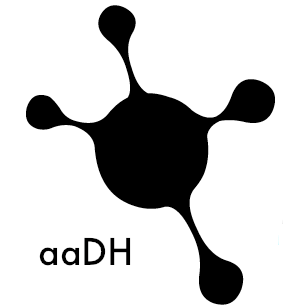 aaDH reposted this 8 years ago
aaDH reposted this 8 years ago Ingrid Mason reposted this 8 years ago
Ingrid Mason reposted this 8 years ago Tom Steinberg liked this 8 years ago
Tom Steinberg liked this 8 years ago Leah Borromeo liked this 8 years ago
Leah Borromeo liked this 8 years ago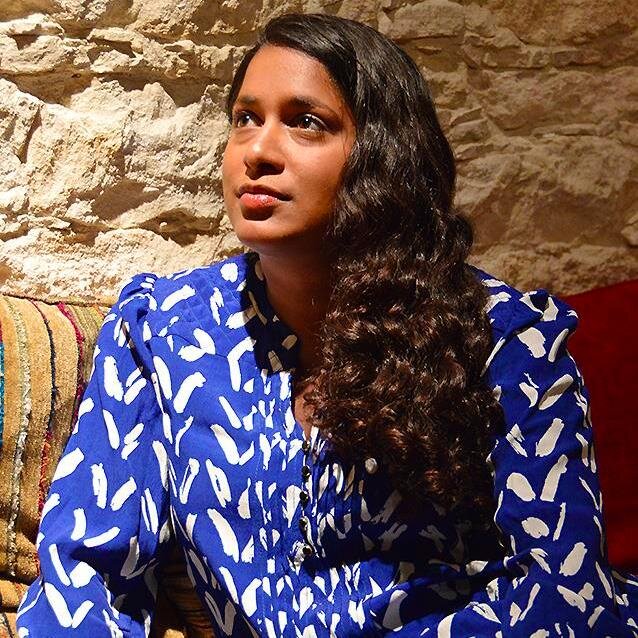 Chanuki Seresinhe liked this 8 years ago
Chanuki Seresinhe liked this 8 years ago James Ball liked this 8 years ago
James Ball liked this 8 years ago Richard Pope liked this 8 years ago
Richard Pope liked this 8 years ago ChrisAldrich liked this 8 years ago
ChrisAldrich liked this 8 years ago Anna Powell-Smith liked this 8 years ago
Anna Powell-Smith liked this 8 years ago David McBride reposted this 8 years ago
David McBride reposted this 8 years ago Jose Murilo
Jose Murilo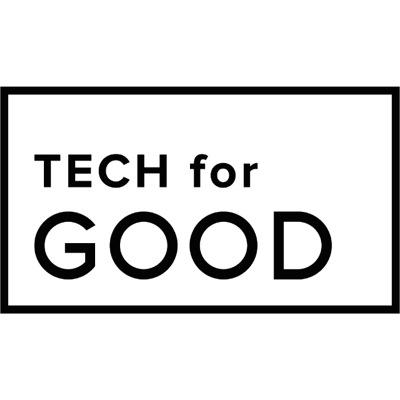 Tech for Good
Tech for Good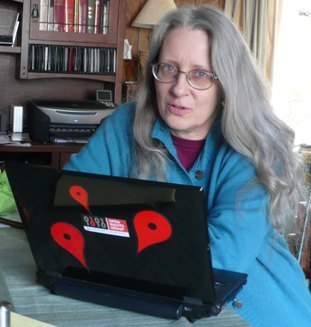 Wendy M. Grossman
Wendy M. Grossman Marc Barto
Marc Barto Sam
Sam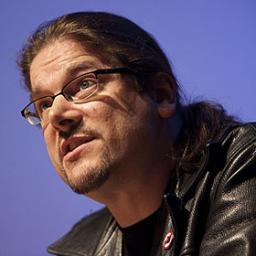 Phil Booth
Phil Booth